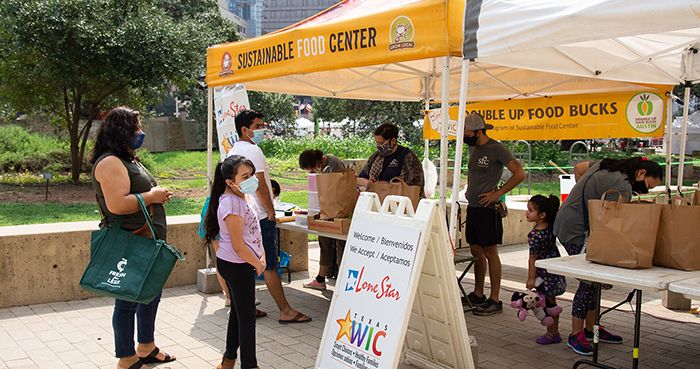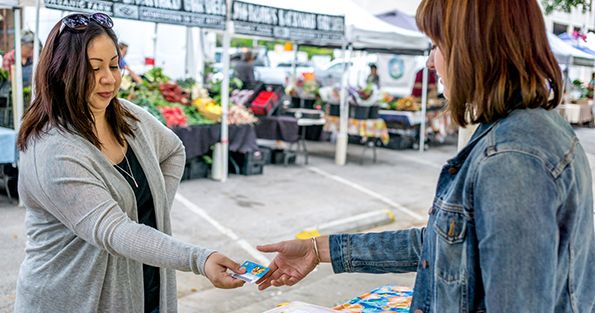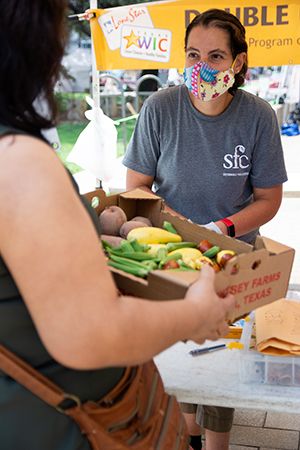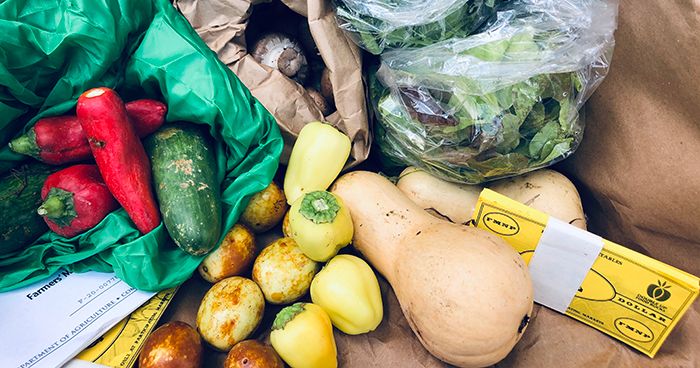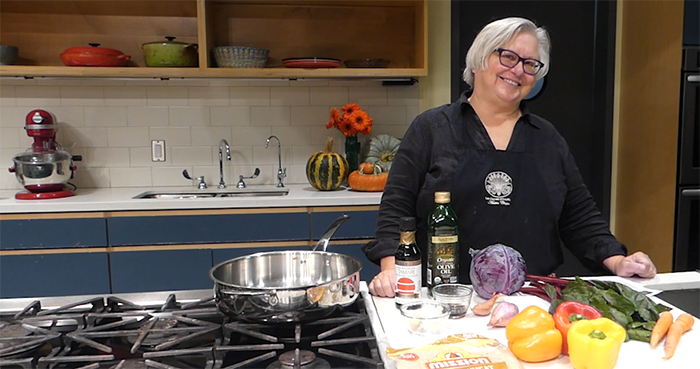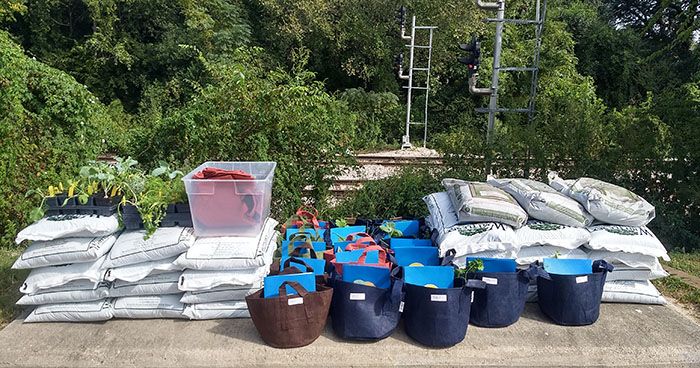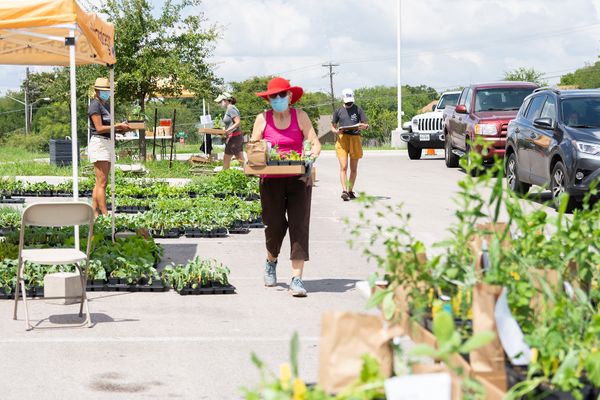Like many others, Sustainable Food Center has faced the challenge of how to serve our community during the pandemic. Economic hardship and shortages of grocery staples made our Food Access and Education services more in-demand than ever before. During this uncertain time, we have seen a higher need for food assistance and a growing interest in eating healthy, local food.
Historically hands-on and community-based, our Food Access and Education team needed to adapt quickly to safely provide our services. By working with key partners and researching best practices, we have started to deliver our services in new ways. Today, we’re taking a closer look at some of the pivots our Food Access and Education team has made since March.

